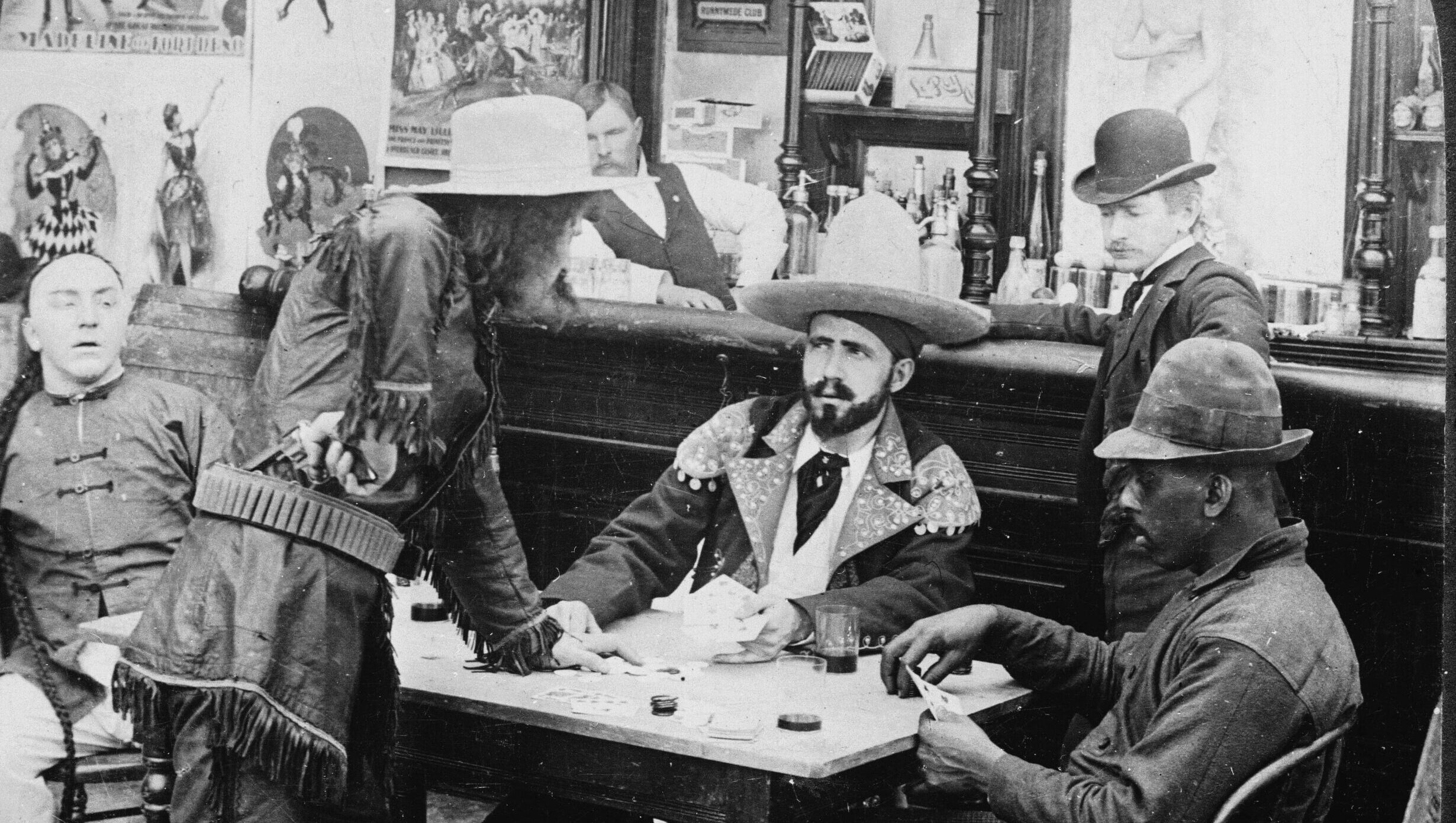Seven Types of Atheism
By John Gray
(Farrar, Straus and Giroux, 2018)
This is a justifiably testy book, by an atheist about atheists. Perhaps it means that the long and lucrative fashion for books about how God does not exist, and how God is simultaneously hateful and wicked, is over. Since John Gray is a capable thinker, knowledgeable about philosophy and a respecter of facts, the recent outburst of arguments for and even about atheism, presented as if they were fresh discoveries, must have struck him as thin. As he himself says, atheism does not really amount to very much. It is just an absence, even if it is a willful one. There is no Gospel of Godlessness, as such, no anti-scripture to which the unbeliever may turn for guidance or solace.
Yet Professor Gray is chilly toward conventional Western religious belief, seeing it as confining rather than liberating. He thinks that by stepping outside monotheism altogether some have “found freedom and fulfilment.” Such people are “not looking for cosmic meaning” and so are “content with the world as they found it.” Are they? Is he? How odd if so. He writes, with what looks like scorn for the Abrahamic faiths, that “religion is universal, whereas monotheism is a local cult.”
From this approach springs Gray’s opening paradox that “contemporary atheism is a flight from a godless world.” Unlike so many modern scoffers at religion, he grasps that while the idea of a just God is terrifying, so is the suspicion or the conviction that there is no just God. The idea of a universe where there is no power that stands for order and justice is, or ought to be, very frightening. So men who can no longer believe in God have instead invented various more or less fatuous concepts to provide such a power, especially a belief in human progress. The trouble with such ideas is that, without God, they are so much whistling in the dark. The godless believer in “progress” is in reality like the victim of an avalanche tumbled deep in snow. He has no idea which way is up because he has no means by which to measure anything of the kind. Ultimately he must use religious categories to orient himself.
Gray keeps on saying much the same thing in many different ways, such as his contention that “secular thought is mostly composed of repressed religion.” This is all so obviously correct that, like so many other blindingly obvious things that we prefer to ignore, nobody likes to discuss it. Perhaps most definitive of all is his observation that godless searches for a universal law are futile. “Without a law giver, what can a universal moral law mean?” he asks. “If you think of morality as part of the natural behaviour of the human animal, you find that humans do not live according to a single moral code. Unless you think one of them has been mandated by God, you must accept the variety of moralities as part of what it means to be human.” Well, exactly. No God: no law. No law: no morals, just situational, alterable ethics. I am amazed that so few seem to realize the implications of atheism for the rule of law over power, the one thing that really sustains human civilization.
Yet Gray also asserts that if an atheist is “anyone with no use for the idea of a divine mind that has fashioned the world” then “in this sense atheism does not amount to very much. It is simply the absence of the idea of a creator-god.” I find this supposed indifference and passivity rather irritating. It is not an absence. It is a willful and deliberate rejection of an unwelcome idea. Many modern atheists (not Gray) assert that their position is an “absence of belief,” and say that they “have no belief in gods” (always using the lowercase g and the plural of God to exasperate Christians). But this is plainly twaddle. Clams, winkles, and slugs may have no belief or may “lack belief,” though we might be doing a disservice to mollusks by saying this. Bricks and planks and garbage cans definitely have no beliefs. But every thinking person has at some stage considered the nature of the cosmos and decided what to think about it. And, as the atheist Professor Thomas Nagel has rightly asked himself (though not really answered), “Why do I so very much want there not to be a God?”
This brief, dry, droll book contains many enjoyable mockeries of various earnest and ridiculous (and failed) attempts to create substitutes for religion, from Auguste Comte to Ayn Rand, who seems to have turned smoking into a sort of sacrament. Even more enjoyably, Gray teases those who try to build a morality on evolution by natural selection, pointing out how that theory has been used in the past to justify what its modern supporters would rightly denounce as appalling racial bigotry and perhaps worse than that. He reminds us of T. H. Huxley’s typically clear-eyed and undeceived warning that evolution “is incompetent to furnish any better reason why what we call good is preferable to what we call evil than we had before.”
Gray gleefully drives a bulldozer through and across what are really already the ruins of historical inevitability, the belief in progress, and the other Marxist and pseudo-Marxist rubbish that clutters the minds of the conventionally wise. Not that this makes any difference. The conventionally wise are immune to such assaults, as they know they are right and that those who challenge them are crazed heretics. The story of the Emperor’s New Clothes appealed to me as a child. But since I put away childish things, I have thought it completely untrue. In the political and journalistic world I know, and in which I have made the occasional attempt to challenge conventional wisdom, the boy who saw the emperor’s nakedness would probably have been locked up by the secret police (along with his parents). In a more enlightened modern society, he would instead have been drugged with Adderall or Ritalin and antidepressants until he could clearly see the monarch’s raiment and had got his mind right.
Most people do not think. Most see what they expect to see. Where atheism is in fashion, it will be common and respectable, and aggressive toward heretics. Likewise when religion is respectable and in fashion, it too will behave in this unpleasant way. Those who actually wish to think about the matter will almost always find that they must keep quiet about their inmost doubts or get into serious trouble. It is extremely difficult, time-consuming, and possibly even dangerous in the modern world to question the orthodoxies of man-made climate change, sexual liberation, “dyslexia,” “ADHD/ADD,” the excusing of bad habits on the grounds of irresistible “addiction,” and the treatment of depression by drugs. All these in their different ways are outgrowths of the atheist worldview. All have a furious and spiteful attitude toward dissent, based, as persecution always is based, on insecurity.
I think Professor Gray is pretty free of the illusions of modern liberal atheism. Because he has a genuinely original and questioning mind, he seems to me to demonstrate a certain fondness for a sort of pantheism, close to Albert Einstein’s agreeably modest refusal to endorse atheism because it is so banal.
I myself love Einstein’s words because they demolish the assumption that scientific knowledge somehow mandates atheism, or that atheism is the only reasonable consequence of cosmic knowledge. I quote them here because they are not nowadays widely known, and they are greatly relevant to any serious discussion of this matter. In an interview published in George Sylvester Viereck’s book Glimpses of the Great, published in 1930, Einstein responded to a question about whether he defined himself as a pantheist:
Your question is the most difficult in the world. It is not a question I can answer simply with yes or no. I am not an Atheist. I do not know if I can define myself as a Pantheist. The problem involved is too vast for our limited minds. May I not reply with a parable? The human mind, no matter how highly trained, cannot grasp the universe. We are in the position of a little child, entering a huge library whose walls are covered to the ceiling with books in many different tongues. The child knows that someone must have written those books. It does not know who or how. It does not understand the languages in which they are written. The child notes a definite plan in the arrangement of the books, a mysterious order, which it does not comprehend, but only dimly suspects. That, it seems to me, is the attitude of the human mind, even the greatest and most cultured, toward God. We see a universe marvellously arranged, obeying certain laws, but we understand the laws only dimly. Our limited minds cannot grasp the mysterious force that sways the constellations. I am fascinated by Spinoza’s Pantheism. I admire even more his contributions to modern thought. Spinoza is the greatest of modern philosophers, because he is the first philosopher who deals with the soul and the body as one, not as two separate things.
Professor Gray, likewise, plainly finds Spinoza appealing (who cannot?) because he separates the monotheistic idea of God from the idea of God as such. In much the same spirit, he likes the equally attractive George Santayana, who was rich and clever enough to be able to watch the clash of ignorant armies from a safe distance, smiling indulgently as he did so. He described his atheism as “true piety towards the universe,” which “denies only gods fashioned by men in their own image, to be servants of their human interests.”
Gray summarizes Spinoza in a way that seems designed to rebuke the noisy and angry “New Atheists” (whom he dismisses in a few short, scornful pages). He says of Spinoza’s thought, “No one who understands God can hate God, but no one can ask God to love them in return, since they and God are not different things.” Gray, it seems to me, thinks himself too clever to believe in the Christian or Jewish or Muslim God. Even so, he is not too clever to observe that atheism is a bald, blank, and incurious response to entering the great library of Einstein’s parable. But he still thinks that when man tries to construct any explanation of the ultimate law of the universe, he is inventing something, rather than describing something. In his conclusion, equivocally entitled “Living without belief or unbelief,” he laughs at the idea that belief and atheism are opposites, jesting that “contemporary atheism is a continuation of monotheism by other means” and that “belief and unbelief are poses the mind adopts in the face of an unimaginable reality.”
Well, this sort of thing is what slim volumes are for, an agreeable display of cleverness and deep knowledge lightly worn, ending with a gust of superior laughter at the silliness of mankind. Yet I ended it feeling a little sorry for its ultimate aridity, which seems to say that, while there is in truth some great thing we cannot grasp, it narrows our minds to try too seriously to do so.
I disagree. As I think Gray understands very well, a good poem may describe more than it apparently expresses. This is not least because it will be concerned precisely with unimaginable reality. I considered that unimaginable reality recently as I looked down into a grave in the warm, familiar chalk soil of Hampshire in England, and contemplated the coffin, already half-covered with earth, of a good friend, younger than I am, who has just gone into eternity a little way ahead of me. And it was the profound poetry of monotheism, specifically that of the English Prayer Book, what Philip Larkin tried and failed to dismiss as a “vast moth-eaten musical brocade, created to pretend we never die,” that best enabled me to consider and respond to the unimaginable reality of the fact that in the midst of life, I was in death.
It might even be that, if we could step into Einstein’s great library (which I imagine to be rather like the one in Trinity College, Dublin) and opened the first book, we should find it was a book of poetry. And perhaps it would begin by reminding us that “Man that is born of a woman hath but a short time to live, and is full of misery. He cometh up and is cut down, like a flower; he fleeth as it were a shadow, and never continueth in one stay.” And then, as we turned away, ambushed by beauty and perhaps blinded by tears, we might consider the possibility that it is not a pose to believe that God was once man and dwelt among us, full of grace and truth, and knew death, and overcame it. For if there are justice and law and hope in the universe, they are surely to be found only on the far side of the grave. And if none of these things exists, then there is no unimaginable reality, nor any point in one, nor any point in poetry and music and speech and temporal love—just mud and silence.♦
Peter Hitchens is the author of The Rage Against God: How Atheism Led Me to Faith.
Founded in 1957 by the great Russell Kirk, Modern Age is the forum for stimulating debate and discussion of the most important ideas of concern to conservatives of all stripes. It plays a vital role in these contentious, confusing times by applying timeless principles to the specific conditions and crises of our age—to what Kirk, in the inaugural issue, called “the great moral and social and political and economic and literary questions of the hour.”














